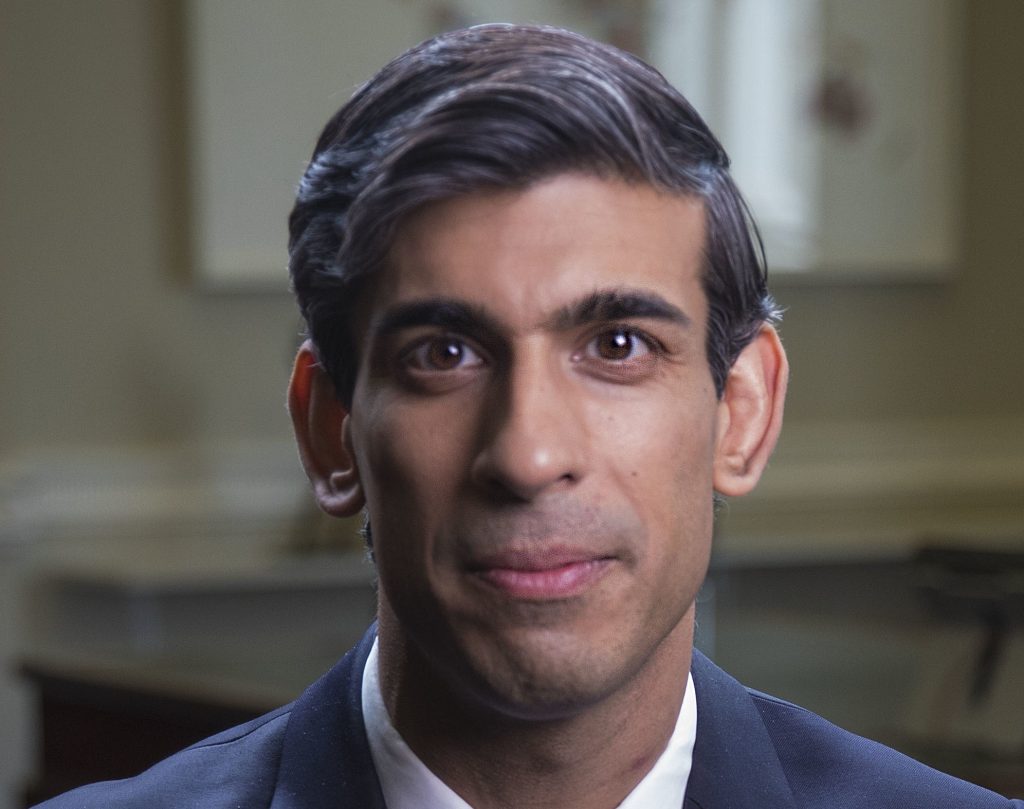A week after airing controversial views that attacked civil liberties and vilified Muslims in Britain, Conservative leadership contender Rishi Sunak is embroiled in a new controversy. This time, the former Chancellor has been slammed by British Turkish Cypriots, who accuse him of “flagrant misinformation” and “anti-Turkish bias” after he appeared to take sides in the Cyprus conflict.
The issue arose after the Conservative Friends of Cyprus (CFC) – a pro Greek Cypriot lobby group in the Conservative Party – published letters from the two leadership contenders, Rishi Sunak and Liz Truss, on its website earlier this week. The two politicians were responding to a request from CFC Executive Chairman, lawyer Jason Charalambous, about their views on Cyprus.
While Truss adopted a neutral position in her letter, Sunak used language and references that not only distorted historical events in Cyprus, but also otherised Turkish Cypriots and undermined their political equality and democratic choices, causing huge offense to the Turkish Cypriot community.
“Him referring to just “Cyprus” and “British Cypriots” vs. “Turkish Cypriot side” is very frustrating. There is the Republic of Cyprus AND the Turkish Republic of Northern Cyprus. There are Turkish Cypriots AND Greek Cypriots. We are not one. We exist”, tweeted football consultant Cigdem Turkan, whose family members were saved from certain death by Turkiye’s intervention in 1974.
Sunak started his letter to CFC by saying, “First and foremost, I want to acknowledge the pain and hurt caused by the invasion of 1974. Many Cypriots had to flee their homes and have never been allowed to return. Others suffered the loss of loved ones, some of whom are still missing, and they deserve answers.”
Him referring to just “Cyprus” and “British Cypriots” vs. “Turkish Cypriot side” is very frustrating. There is the Republic of Cyprus AND the Turkish Republic of Northern Cyprus. There are Turkish Cypriots AND Greek Cypriots. We are not one. We exist. https://t.co/O0Ia49wQxH
— Cigdem Turkan HMT (@CigdemTurkanHMT) August 11, 2022
The former Chancellor is seemingly unaware the word “Cypriot” refers to more than Greek Cypriots, and that Turkiye did not invade Cyprus, but had a legal right and duty to intervene as a Guarantor Power. The North Yorkshire MP is also oblivious to the fact that the Cyprus Conflict did not start in 1974, but in December 1963.
In Mr Sunak’s revisionist version of Cyprus’ recent history, there is concern for the suffering of “Cypriots” as a result of the conflict in 1974, yet no mention of the events that occurred on the island in the decade preceding this period that saw Turkish Cypriots brutalised.
YTC on Rishi Sunak’s Cyprus views: “A worrying sign for the 300k British TCs living in the UK as their next leader could be a Turkophobe”
Between 1963 and 1974, hundreds of Turkish Cypriot civilians were murdered or went missing, and half of all Turkish Cypriots were made homeless, some three times over. The displaced Turkish Cypriots were forced out of 103 villages and into enclaves covering just 3% of the entire island, with many of their homes and villages destroyed by the Greek Cypriots in 1964.
Turkish Cypriots who left the island before or during the conflict found they were barred from returning to their homeland and were only given brief visiting rights. Those still on the island were denied their constitutional rights as political equals – and are still denied; the Greek Cypriots, having grabbed power in December 1963, steadfastly refuse to share power with Turkish Cypriots.
In July 1974, a Greece-backed coup deposed the Greek Cypriot leader Archbishop Makarios and installed a notorious murderer, Nicos Sampson, who had sworn to annihilate all Turks in Cyprus. Turkiye’s intervention not only prevented the genocide of the island’s Turks, but also stopped the bloody conflict between warring Greek Cypriot factions.
None of these historic facts were reflected in Mr Sunak’s letter on Cyprus. Nor was there any consideration as to why a new federal partnership between the two sides in Cyprus has not been possible to achieve, despite nearly sixty years of UN and UK-backed negotiations to resolve the dispute.
Mr Sunak upheld the status quo and political disparity on the island, calling the Greek Cypriot leader Nicos Anastasiades “President of Cyprus”, even though he does not represent Turkish Cypriots or North Cyprus. He also praised the Greek Cypriot leader for wanting “to resume negotiations”, sidestepping the fact that it was Mr Anastasiades who collapsed the federal talks at Crans Montana in 2017, which pushed Turkish Cypriots to look for alternatives.
Tellingly, Mr Sunak offered no new ideas to break the political deadlock in Cyprus. Instead, the would-be Prime Minister, who is being advised by former Foreign Secretary Dominic Raab, trotted out the tried and failed British policy of a federal solution for Cyprus, pledging to support the minority of Cypriots who want to “reunite their island.”
By doing so, Mr Sunak negated the democratic wishes of Turkish Cypriots, who voted for candidates backing a two-state solution in both the 2020 TRNC Presidential and 2022 Parliamentary Elections.
BREAKING NEWS 📢#ConservativesLeadershipContest candidates@trussliz & @RishiSunak express their support & commitment to #Cyprus, #UKCyTies and #BritishCypriot community in letters to @CFCyprus chairman @JasonTGC!
🇬🇧🤝🇨🇾
Read their letters here:
https://t.co/DmhdbtCDWs— Conservative Friends of Cyprus (@CFCyprus) August 10, 2022
Mr Sunak’s failure to be even-handed went as far as finding fault with Turkish Cypriots trying to protect their economic rights, and looking to resolve long-standing problems such as enabling property owners to return to their former homes in the closed-off city of Varosha/Maras.
The Indian-origin politician called on the Turkish Cypriot side to “refrain from any provocative actions that undermine trust and goodwill and thus render negotiations more difficult.” He specifically referred to Varosha, which the TRNC Government partially opened in 2020, and to the “waters of the Exclusive Economic Zone”, calling on the Turkish side to “ discontinue drilling activities.”
OFFICIAL: BTCA responds to Rishi Sunak’s letter to the “Conservative Friends of Cyprus”. Please read below ⬇️ #BritishTurkishCypriotAssociation #BTCA #RishiSunak #ConservativeLeadershipContest #lizztruss @RishiSunak @Conservatives pic.twitter.com/Fgb5YF8xAx
— British Turkish Cypriot Association (@BTCAOfficial) August 11, 2022
He had nothing to say about the unilateral actions of the Greek Cypriot authorities on a host of areas, including pursuing hydrocarbon exploration while deliberately excluding Turkish Cypriots. Mr Sunak also failed to call for more co-operation across the Green Line divide to help normalise relations between the two sides and help them move beyond the 60-year-old conflict.
The British Turkish Cypriot Association has written an open letter criticising Mr Sunak’s Cyprus views, calling his position “very one sided and anti-Turkish/Turkish Cypriot.”
They said the politician’s letter contained “historical untruths” and “flagrant misinformation”, tearing apart the points Sunak had made, including his failure to acknowledge the ”11-year ethnic cleansing campaign” against Turkish Cypriots, and that Turkey’s “actions in 1974 had achieved peace on the island for the last 48 years.”
The reference to the Turkish “invasion” as well as the claims of Turkish Cypriot “provocation” highlight @RishiSunak limited knowledge on the Cyprus issue. A worrying sign for the 300k British TCs living in the UK as their next leader could be a Turkophobe #RishiSunak #Cyprus pic.twitter.com/9xUdyv8lTf
— Y.T.C (@Young_Turk_Cyp) August 11, 2022
British youth group the Young Turkish Cypriots went further when it shared Rishi Sunak’s letter to CFC, questioning whether the possible future leader of the UK was a “Turkophobe”:
“The reference to the Turkish “invasion” as well as the claims of Turkish Cypriot “provocation” highlight @RishiSunak limited knowledge on the Cyprus issue. A worrying sign for the 300k British TCs living in the UK as their next leader could be a Turkophobe”
Rishi Sunak and his campaign team were invited to comment on this issue, but no response was forthcoming at the time the article was published.
Main image, top, of Chancellor Rishi Sunak in 2020. Photo © Simon Walker / HM Treasury – Flickr, OGL 3




